You Don’t Know What Love Is
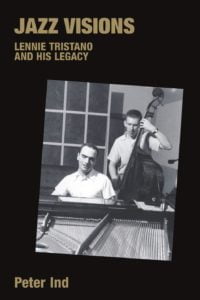
Lennie Tristano – Who was Lennie Tristano, the Jazz Master (1919-1978)?
Lennie Tristano was born in Illinois, Chicago in 1919 “almost blind in the bosom of a family originally from southern Italy, he began his piano studies with his mother, an opera singer and pianist. At the age of ten he enters a school in Chicago where he studies music theory, alto and tenor saxophones, clarinet and violoncello, and at the same time directs the school orchestra”.
According to the text that accompanies the aforementioned album, at this time Lennie Tristano also played trumpet, guitar and drums. He later starts higher music studies and gets a ‘Bachelor of Music’ in just two years. It is after his studies when he begins to be interested in Jazz and musical improvisation in general.
Download the best Jazz Transcriptions and sheet music from our Library.
His influences, apart from classical music (especially Bach), can be summed up with the following names: Art Tatum, Bud Powell, Earl Hines Lester Young and Charlie Parker. In 1943, he combined his career as a musician with teaching, for which he should also be considered an important ‘Jazz Educator’ (Jazz teacher).
Later he even founded his “New School Of Music” in New York. At that time he coincides with Lee Konitz, alto saxophonist, also originally from Chicago, with a unique style that will play a very important role in his future formations. In 1945, he collaborated with the formation of Earl Swope (trombonist) and Woody Herman (clarinetist, band-leader and singer), moving to New York in 1946.
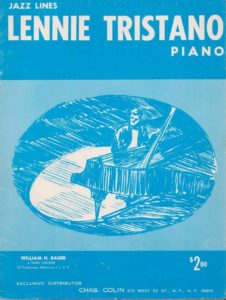
From his circle of students and colleagues an extraordinary sextet crystallized in 1948: Lee Konitz (alto sax), Warne Marsh (tenor sax), Billy Bauer (guitar), Lennie Tristano (piano), Arnold Fishkin/Harold Granowsky (bass) and Denzil Best (drums).
The group worked closely together for a year, something unusual, until recording Crosscurrent for the Capitol label in March and May 1949 in New York.
What is special about Lennie Tristano’s style is a very linear approach to his improvisations. Until now, melodic improvisation in Jazz was mainly based on playing what the harmonic base pre-established (the vertical part of the music). In other words: melodic instruments played piano or guitar chords in the form of successive notes (arpeggios) to create melodic lines.
Tristano tries to give the melodic line itself more importance, so that it could also exist without harmony. His goal is to avoid the repetition of ideas and to improvise ‘for real’ without the use of ‘licks’ (pre-established and pre-rehearsed melodic fragments). Later, on his album “Lennie Tristano” from 1955, he includes two songs in which he practically does not play any chords, only a great melodic line, a particular thing for a pianist, considering that the strong point of the piano tends to be precisely the chords. .
The last consequence, as paradoxical as it may seem, is the complete annulment of the harmonic instrument in some Cool Jazz formations, such as the Gerry Mulligan Quartet with Chet Baker from 52/53, with the formation: sax, bass trumpet and drums.
Apart from the plain melodic line, he experimented with counterpoint, that is, the simultaneous combination of two or more independent melodic voices. He is in fact considered a pioneer in counterpoint improvisation. Another peculiarity was a total independence of melody and compass.
That is to say: he played asymmetrical phrases that did not correspond to the beats, they went beyond the bar line and the structures of the general form of the musical piece, to such an extent that he had difficulty finding a drummer capable of accompanying him adequately.
The latter obviously also exists in Bebop, for example, but not in such an outlined and intentional way.
When it comes to recording his music, he is probably the first Jazz musician to experiment with the possibility of recording by tracks. This is impressively documented in his ’55 Turkish Mambo track, in which he records three melodic lines on top of each other. Each changing independently of measure during the piece. The result is a delirious combination of voices, counterpoints and polyrhythms.
Despite his special interest in melody also his chords and harmonic links were complex and innovative. To all this we must add another novelty that he introduces in his groups, and that is perhaps the most revolutionary.
At the end of their concerts, Lennie Tristano and his musicians would often play a free piece. The only thing that was remembered before performing was the order of entry of the instruments. That same thing, by the way, he also used to do with his students.
He dedicated his entire life to a single goal: to achieve total mastery of his instrument and the music for it. In this way, he wanted to reach a total state of control and freedom at the same time. In this way he wanted to give way to the essence of Jazz: feeling and emotion, the work that all Jazz musicians do deep down. Lennie Tristano, in a conversation with the critic Barry Ulanov points out: “I can never think and play at the same time […]. It’s emotionally impossible. [Adds Ulanov:] Thought is an anticipation of acting. The studio precedes a recording like this week after week, month after month, year after year.”
His album Crosscurrent (‘Capitol Sessions’) / Intuition was released in parts from 1949 to 1954, as the record company apparently did not dare to release the material at all (probably fearing financial failure, then ignoring its historical importance). Until it was finally published in its entirety in 1972. In 2012, it was included in the ‘Grammy Hall of Fame’ of recordings.
Today more than before the influence of the ‘Tristano School’ continues to have late indirect disciples such as Mark Turner, Kurt Rosenwinkel, Jorge Rossy to name a few.
Best Sheet Music download from our Library.
Browse in the Library:
| Artist or Composer / Score name | Cover | List of Contents |
|---|---|---|
| Unforgettable – Irving Gordon (Nat King Cole Song) Piano Solo Sheet Music | Unforgettable – Irving Gordon (Nat King Cole Song) Piano Solo Sheet Music | |
| Unforgettable Musical Memories – Reader’s Digest Songbook, A |
 |
Unforgettable Musical Memories – Reader’s Digest Songbook, A |
| Unforgettable… The Lighter Side Of Jazz |
 |
Unforgettable… The Lighter Side Of Jazz |
| UNITED – Look To You Guitar Songbook |
 |
|
| Universal Studios Theme by Jerry Goldsmith arr. Yame Puts |
 |
|
| University Musical Encyclopedia The Theory Of Music And Piano Technique (By E Markham) (1912) | Musical Encyclopedia I | |
| Untraceable – Kill With Me – Christopher Young | ||
| Untraceable – Missing Flowers – Christopher Young | ||
| Uomini soli (Pooh) | ||
| Up (Theme) Married Life By Ari Burns (Piano Solo) |
 |
|
| Up The – Married Life (Piano Solo Arr. Sheet Music) | Up The – Married Life (Piano Solo Arr. Sheet Music) | |
| Upon The Wind There Comes A Song (Musescore File).mscz | ||
| Upon The Wind, There Comes A Song Tradition Irish Melody |
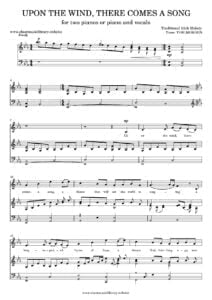 |
|
| Uriah Heep – Sheet Music songbook |
 |
Uriah Heep – Sheet Music songbook (Piano Vocal and Guitar Chords) |
| Urlicht (Gustav Mahler) | ||
| Usher – Make Me Wanna | ||
| Utada Hikaru-First love | ||
| V.S.O.P. Super Jazz Sound Herbie Hancock, Tony illiams,Wayne Shorter, Ron Carter, Freddie Hubbard |
 |
V.S.O.P. Super Jazz Sound Herbie Hancock, Tony illiams,Wayne Shorter, Ron Carter, Freddie Hubbard |
| Valse (Fanfan OST) Nicolas Jorelle | ||
| Valse Crepusculaire (Providence OST) Miklós Rózsa | ||
| Valse Etude – William Gillock Piano Solo Musescore File.mscz | ||
| Valse Op 51 N 1 – Fernando Sor (Musescore File).mscz | ||
| Valzer del Commiato (Il Gattopardo OST) Nino Rota | ||
| Valzer di Lupin (Lupin 3 OST) Franco Micalizzi | ||
| Vampire Weekend Songbook Piano Vocal Guitar Tab |
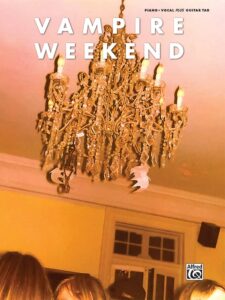 |
Vampire Weekend Songbook Piano Vocal Guitar Tab |
| Van Halen (Van Halen Songbook ) Guitar Full score with TABs |
 |
Van Halen (Van Halen Songbook ) Guitar Full score |
| Van Halen – 1984 Guitar TAB songbook transcribed by Brand McPhail |
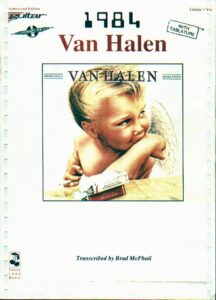 |
Van Halen – 1984 Guitar TAB songbook transcribed by Brand McPhail |
| Van Halen – 5 of the Best Play-It-Like-It-Is Guitar with TABs |
 |
Van Halen – 5 of the Best Play-It-Like-It-Is Guitar |
| Van Halen – Everybody Wants Some The Van Halen Saga (Book by Ian Christe) |
 |
|
| Van Halen – Jump | ||
| Van Halen – Right Now | ||
| Van Halen (Guitar Backing tracks with TABs) Jam with Van Halen – (with MP3 audio tracks to play along) |
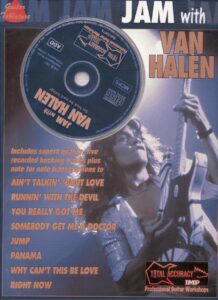 |
Jam with van Halen |
| Van Halen 30 Classics From The Legendary Guitar God (Authentic Guitar Tab) (Authentic Guitar Tab Editions) |
 |
Van Halen 30 classics |
| Van Halen Anthology Guitar songbook with TABs |
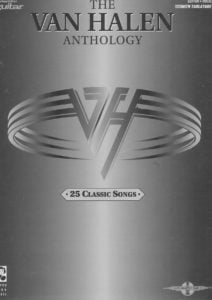 |
Van Halen Anthology Guitar songbook |
| Van Mccoy – Baby Im Yours | ||
| Van Morrison Have I Told You Lately That I Love You (Rod Stewart Ver.) | Van Morrison Have I Told You Lately That I Love You (Rod Stewart Ver.) | |
| Van Morrison The Guitar Collection with TABs |
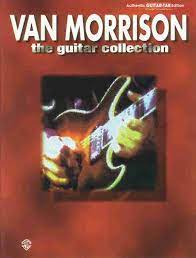 |
Van Morrison The Guitar Collection |
| Van Morrison – Anthology Songbook Piano Vocal Guitar Chords |
 |
Van Morrison – Anthology Songbook Piano Vocal Guitar Chords |
| Van Morrison – Back On Top Book Songbook Piano Vocal Guitar Chords |
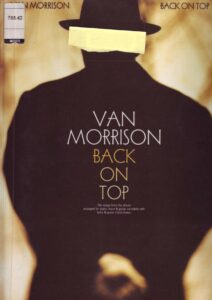 |
Van Morrison – Back On Top Book Songbook Piano Vocal Guitar Chords |
| Van Morrison – Have I Told You Lately That I Love You (Rod Stewart Ver.) (Musescore File).mscz | ||
| Van Morrison – Veedon Fleece Piano Vocal Guitar Chords |
 |
Van Morrison – Veedon Fleece Piano Vocal Guitar Chords |
| Van Morrison Sheet Music Anthology |
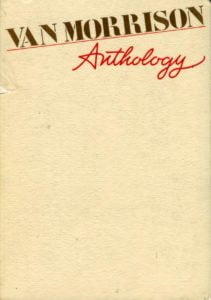 |
Van Morrison Sheet Music Anthology |
| Van(Var) (A Silent Voice) |
 |
|
| Vanessa Carlton – A Thousand Miles | ||
| Vanessa Carlton – Afterglow | ||
| Vanessa Carlton – All I Ask | ||
| Vanessa Carlton – All Is Well | ||
| Vanessa Carlton – Ameriteen | ||
| Vanessa Carlton – Birdie | ||
| Vanessa Carlton – Burden | ||
| Vanessa Carlton – Cest La Vie | ||
| Vanessa Carlton – Dark Carnival | ||
| Vanessa Carlton – Devil Dance | ||
| Vanessa Carlton – Faces | ||
| Vanessa Carlton – Half A Week Before The Winter | ||
| Vanessa Carlton – Last Fall | ||
| Vanessa Carlton – Little Mary | ||
| Vanessa Carlton – Meggie Sue | ||
| Vanessa Carlton – Morning Sting | ||
| Vanessa Carlton – Ordinary Day | ||
| Vanessa Carlton – Papa | ||
| Vanessa Carlton – Pretty Baby | ||
| Vanessa Carlton – Private Radio | ||
| Vanessa Carlton – Put Your Hands On Me | ||
| Vanessa Carlton – Red Ditty | ||
| Vanessa Carlton – San Francisco | ||
| Vanessa Carlton – She Floats | ||
| Vanessa Carlton – Swindler | ||
| Vanessa Carlton – The One | ||
| Vanessa Carlton – The Wreckage | ||
| Vanessa Carlton – This Time | ||
| Vanessa Carlton – Time Is On My Side | ||
| Vanessa Carlton – Twilight | ||
| Vanessa Carlton – White Houses | ||
| Vanessa Carlton – Whos To Say | ||
| Vanessa Carlton – Wonder | ||
| Vanessa Carlton Harmonium Songbook |
 |
Vanessa Carlton Harmonium Songbook |
| Vanessa Williams – Colors Of The Wind | ||
| Vanessa Williams – Save The Best For Last | ||
| Vanessa’s dream – Penny Dreadful OST (Abel Korzeniowski) | ||
| Vangelis Antarctica Guitar Arr With Tabs (1 or 2 Guitars with Tablature) | Vangelis Antarctica Guitar Arr With Tabs (1 or 2 Guitars with Tablature) | |
| Vangelis – Antarctica Guitar arr with TABs (1 or 2 guitars).mscz | ||
| Vangelis – Blade Runner – Piano in an Empty Room |
 |
|
| Vangelis – Chariots Of Fire | Vangelis Charriots of fire | |
| Vangelis – Chariots Of Fire (Guitar with TABs) | Vangelis – Chariots Of Fire (Guitar with TABs) | |
| Vangelis – Conquest Of Paradise | Vangelis – Conquest Of Paradise | |
| Vangelis – Conquest Of Paradise (Musescore File).mscz | ||
| Vangelis – Five Circles from Chariots of Fire (Guitar arr. with Tablature) | Vangelis – Five Circles from Chariots of Fire (Guitar arr. with Tablature) | |
| Vangelis – L’enfant (from The Year of Living Dangerously) (Guitar with TABs) | Vangelis – L’enfant (from The Year of Living Dangerously) (Guitar with TABs) | |
| Vangelis – La Petite Fille De La Mere (from L’Apocalypse des Animaux) (Guitar with TABs) | Vangelis – La Petite Fille De La Mere (from L’Apocalypse des Animaux) (Guitar with TABs) | |
| Vangelis – La Petite Fille De La Mere (Guitar TABs) |
 |
|
| Vangelis – Missing Main Theme From the film Missing (Guitar TABs) | Vangelis – Missing Main Theme From the film Missing (Guitar TABs) | |
| Vangelis – Missing Main Theme From the film Missing (Piano) | Vangelis – Missing Main Theme From the film Missing (Piano) | |
| Vangelis – Prelude |
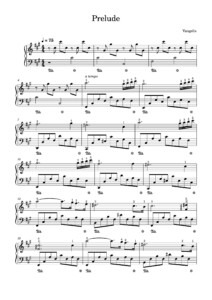 |
|
| Vangelis – The Best Of (piano songbook) |
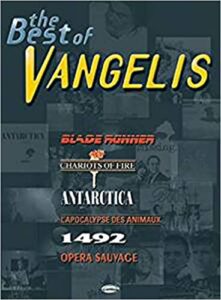 |
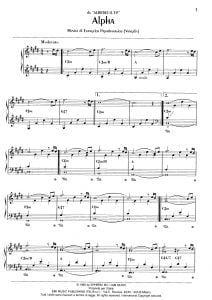 |
| Vangelis Aphrodite’s Child Rain And Tears Guitar |
 |
|
| Vangelis Heaven and Hell Piano Solo |
 |
|
| Vangelis La Petite Fille De La Mer piano solo |
 |
|
| Variations In Merry Go Round Of Life – Joe Hisaishi | Variations In Merry Go Round Of Life – Joe Hisaishi | |
| Vassiliev Konstantin Three Forest Painting Guitar |
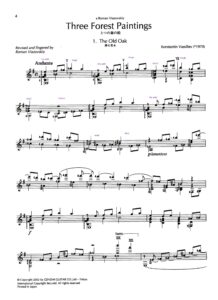 |
|
| Vassiliev, Konstatin Alba (1996) Guitar Sheet Music With Tabs |
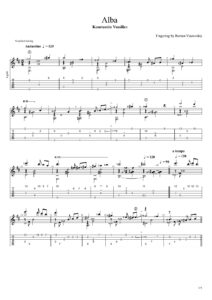 |
|
| Vaughan Williams The Lark Ascending (Violin and Piano Reduction) |
 |
|
| Vaughan Williams – Fantasia On A Theme By Thomas Tallis (Musescore File).mscz | ||
| Vaughan Williams Lark Ascending Piano violin arr. by J. Godderis |
 |
|
| Vaughan Williams On Music Oxford Un. by David Manning (Book) |
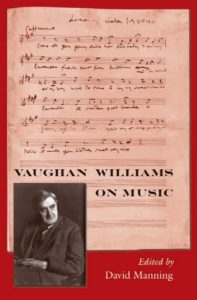 |
|
| Vavilov Vladimir Ave Maria (Wrongly Attributed To G.Caccini) Piano And Two Voices |
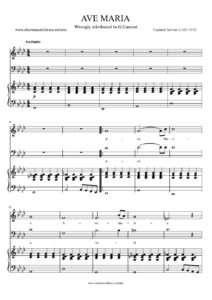 |
|
| Vavilov Vladimir – Ave Maria (Wrongly Attributed To G.Caccini) Piano And Two Voices (Musescore File).mscz | ||
| Vazha Azarashvili – Nocturne |
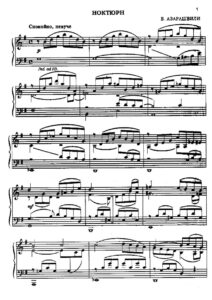 |
|
| Vazha Azarashvili – Nostalgia |
 |
|
| Vazha Azarashvili Sentimental Tango (4 hands piano sheet music) | Vazha Azarashvili Sentimental Tango (4 hands piano sheet music) first page | |
| Vazha Azarashvili Sentimental Tango (piano solo sheet music) | Vazha Azarashvili Sentimental Tango (piano solo sheet music) | |
| Vedrai vedrai (Luigi Tenco) | ||
| Velazquez, Consuelo Amar Y Vivir (Guitarra, Guitar) |
 |
|
| Vengaboys – Boom Boom Boom | ||
| Venice (Only You OST) Rachel Portman | ||
| Verdi Il Trovatore – Anvil Chorus Piano Solo |
 |
|
| Verdi Va Pensiero Piano Solo Arr. Nabucco Acte III Choeur Des Ésclaves Hébreux | Verdi Va Pensiero Piano Solo Arr. Nabucco Acte III Choeur Des Ésclaves Hébreux | |
| Verdi – La Donna è Mobile |
 |
|
| Verdi – La Donna È Mobile (Musescore File).mscz | ||
| Verdi – La Traviatta – Piano Solo arr. |
 |
Lennie Tristano discography
Intuition (1946–52; Box 4 CD + Booklet 40 S.(en), compil. 2003 Proper/mcps)
Complete Recordings of Charlie Parker with Lennie Tristano (1947–51, ed. 2006)
Live at Birdland 1949 (Jazz Records 1979, 1990)
Live in New York (1949; with Lee Konitz, Warne Marsh, Billy Bauer u. a., compil. 2004 by Jazz Door)
Crosscurrents Capitol 1949 (als Album veröffentlicht erst 1972)
Descent into the Maelstrom, Inner City 1952
Lennie Tristano (Atlantic, 1956)
The New Tristano (Atlantic, 1961)
Concert in Copenhagen (aufgenommen 1965, Jazz Records 1997)
The Duo Sessions (Dot Time, ed. 2020)
Personal Recordings 1946-1970 (Mosaic/Dot Time, ed. 2021)Collection
The Complete Atlantic Recordings of Lennie Tristano, Lee Konitz & Warne Marsh (1955-58) – (Mosaic – 1997) – 10 LPs oder 6 CDs – Lennie Tristano p mit Lee Konitz, Gene Ramey, Art Taylor, Peter Ind, Jeff Morton dm –
Lee Konitz as mit Sal Mosca, Peter Ind, Dick Scott dm, Billy Bauer, Arnold Fishkind b, Jimmy Rowles, Leroy Vinnegar, Shelly Manne, Don Ferrara – Lee Konitz & Warne Marsh ts mit Sal Mosca, Billy Bauer, Oscar Pettiford, Kenny Clarke, Ronnie Ball p – Warne Marsh mit Ronnie Ball, Paul Chambers, Philly Joe Jones, Paul Motian